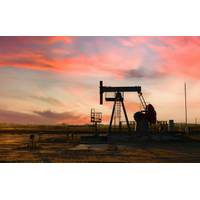The biggest refiner in the U.S. Midwest is eyeing an unusual place to make more of a key ingredient for premium gasoline: the natural gas fields of eastern Ohio instead of an urban refinery.
Marathon Petroleum Corp is after alkylate, which gives premium gasoline its high-octane punch.
Although U.S. gasoline demand had been trending down since the peak in 2007, it is up more than 8 percent compared to a year ago as pump prices plunged alongside global crude prices, according to U.S. government data.
As part of that, more motorists are choosing to buy higher octane premium gasoline. But even if prices rebound, Marathon expects sales of premium fuels to increase as auto manufacturers build more high-compression engines to meet more stringent U.S. Corporate Average Fuel Economy (CAFE) standards through 2025.
Marathon hopes to create an alkylate hub for Midwest and Northeast markets where an abundance of its main component, butane, is produced.
"This is a conceptual project we have, to manufacture octane right near the source," Gary Heminger, chief executive of Marathon, told analysts last month.
The proposed alkylate plan was a factor in the move by Marathon's logistics unit, a master limited partnership known as MPLX LP, to buy MarkWest Energy Partners LP, the biggest natural gas processor and fractionator in the Utica and Marcellus shales, for $15.6 billion. That deal is slated to close in the fourth quarter this year.
Valero Energy Corp, the largest independent U.S. refiner, and Alon USA Energy also say they may add alkylate capacity at their refineries in Houston and Big Spring, Texas, respectively.
But Marathon and MarkWest envisage stand-alone infrastructure, more than 60 miles from the nearest refinery, at MarkWest's NGL fractionation complex in eastern Ohio.
It is not unheard of to build a unit to make a gasoline blendstock outside of a refinery. In the 1990s stand-alone methyl tertiary-butyl ether, or MTBE, units were common.
Like alkylate, MTBE boosted octane in gasoline. It also helped gasoline burn cleaner.
But MTBE was phased out in the United States the 2000s on concerns that it is a carcinogen, and now much of that MTBE infrastructure makes it to export to other countries that still add it to gasoline.
U.S. butane field production hit a 34-year high in April this year at 10.2 million barrels, according to the U.S. Energy Information Administration. That makes alkylate cheaper to produce than another octane booster, reformate, which comes from more expensive naphtha.
(Reporting By Kristen Hays; Editing by Terry Wade and Frances Kerry)




